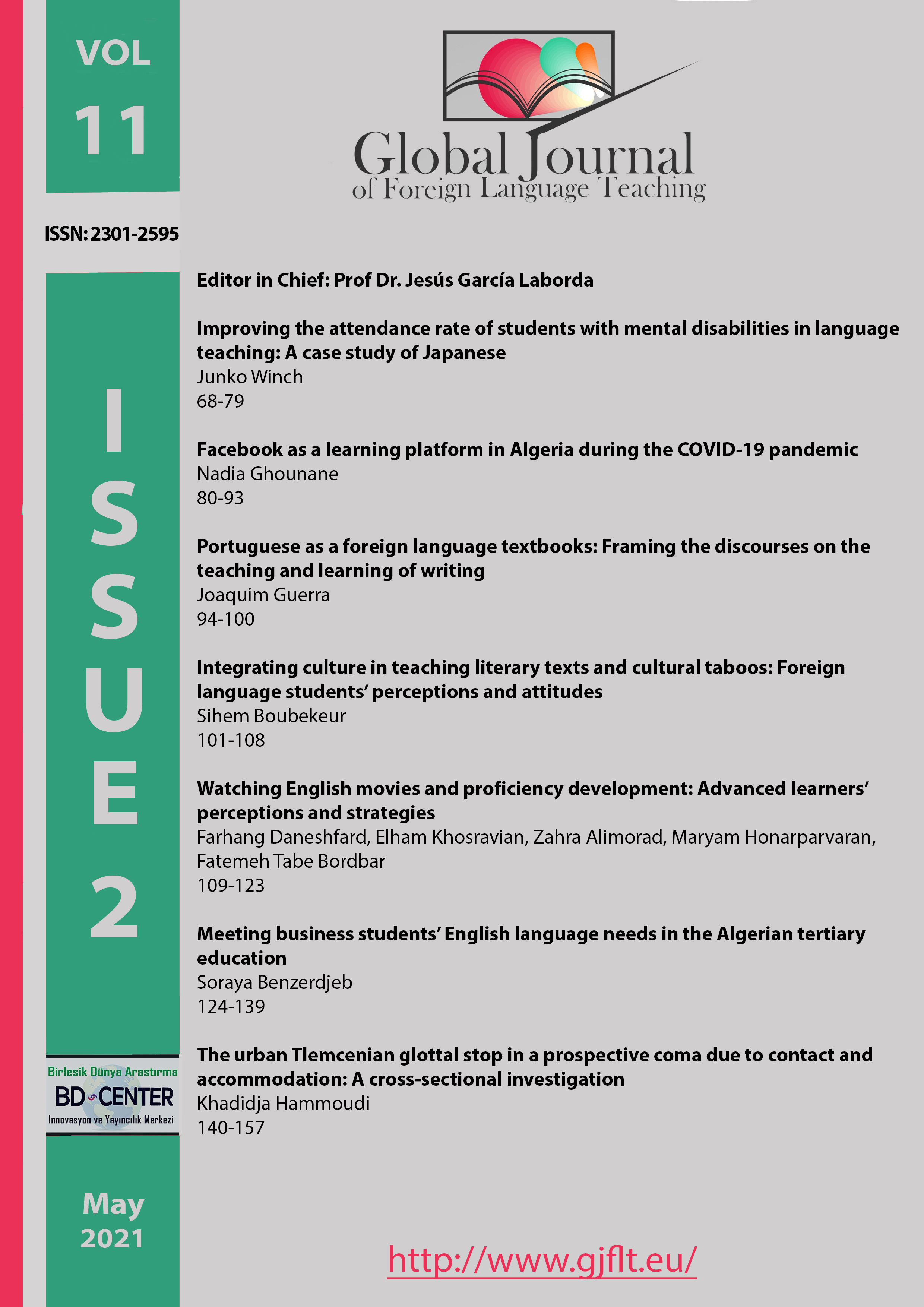Meeting business students’ English language needs in the Algerian tertiary education
Main Article Content
Abstract
Graduate Algerian economic sciences students, who will be future university teachers or workplace managers, are urged to use the English language. However, most of them reveal that they are unable to use the English language appropriately. The main aim in this paper is to depict students’ difficulties and help them improve their academic language performance. This paper describes the teaching and learning situations of English for Business and Economics (EBE) in the Department of Economic Sciences at the University of Tlemcen. The investigator used a questionnaire and two structured interviews. The sampling included EBE learners and English for specific purposes teachers as well as workplace managers (former EBE students). The main findings in this investigation confirmed that students had poor target language proficiency. Results revealed that the content of the actual EBE course was inappropriate to learners’ needs. The investigator wants to integrate new technologies as the government supplies digital platforms to the Algerian universities.
Keywords: Algerian, tertiary education, English, Economics, business students.
Downloads
Article Details

This work is licensed under a Creative Commons Attribution 4.0 International License.
Authors who publish with this journal agree to the following terms:- Authors retain copyright and grant the journal right of first publication with the work simultaneously licensed under a Creative Commons Attribution License that allows others to share the work with an acknowledgement of the work's authorship and initial publication in this journal.
- Authors are able to enter into separate, additional contractual arrangements for the non-exclusive distribution of the journal's published version of the work (e.g., post it to an institutional repository or publish it in a book), with an acknowledgement of its initial publication in this journal.
- Authors are permitted and encouraged to post their work online (e.g., in institutional repositories or on their website) prior to and during the submission process, as it can lead to productive exchanges, as well as earlier and greater citation of published work (SeeThe Effect of Open Access).
